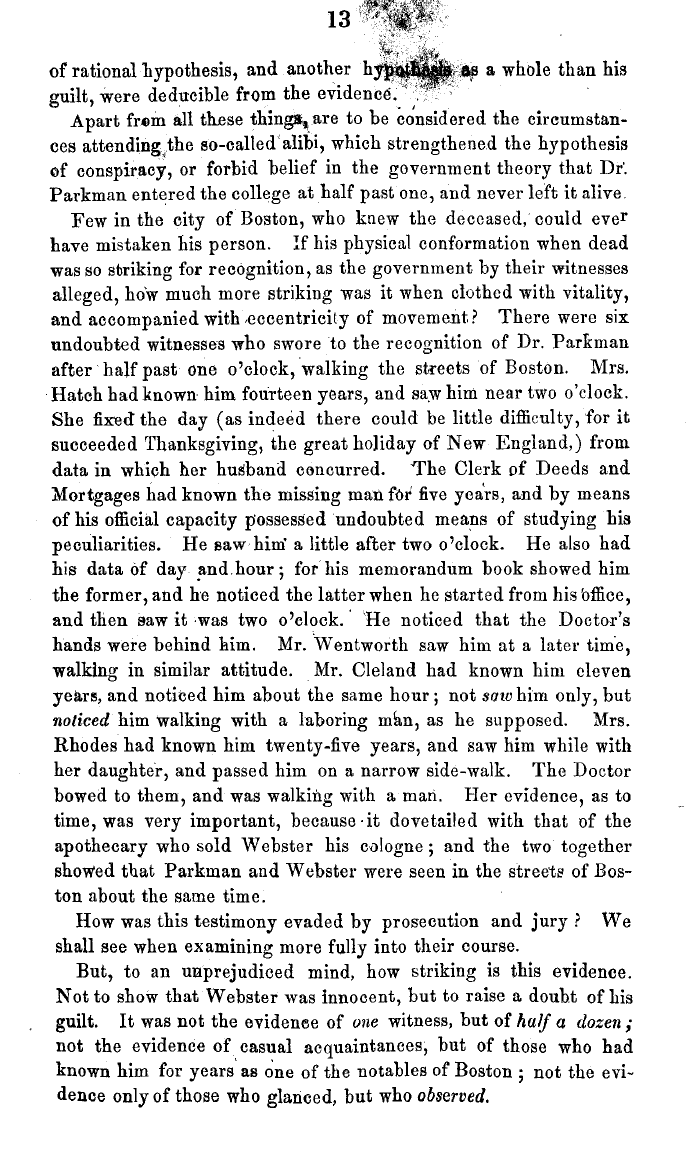|
of rational hypothesis, and another h . '" ~' '';:;8e a whole than his
guilt, were deducible from the evidence:.` `.
Apart from all these things,are to be considered the circumstan-
ces attending~the so-called'alibi, which strengthened the hypothesis
of conspiracy, or forbid belief in the government theory that Dr:
Parkman entered the college at half past one, and never left it alive.
Few in the city of Boston, who knew the deceased, could ever
have mistaken his person. If his physical conformation when dead
was so striking for recognition, as the government by their witnesses
alleged, how much more striking was it when clothed with vitality,
and accompanied with eccentricity of movement? There were six
undoubted witnesses who swore to the recognition of Dr. Parkman
after, half past one o'clock, walking the streets of Boston. Mrs.
Hatch had known him fourteen years, and saw him near two o'clock.
She fixed the day (as indeed there could be little difficulty, for it
succeeded Thanksgiving, the great holiday of New England,) from
data in which her husband concurred. The Clerk of Deeds and
Mortgages had known the missing man fbi five years, and by means
of his official capacity possessed undoubted means of studying his
peculiarities. He saw hint a little after two o'clock. He also had
his data of day and.hour ; for his memorandum book showed him
the former, and he noticed the latter when he started from his office,
and then saw it was two o'clock. ~ He noticed that the Doctor's
hands were behind him. Mr. Wentworth saw him at a later time,
walking in similar attitude. Mr. Cleland had known him eleven
years, and noticed him about the same hour; not saw him only, but
noticed him walking with a laboring mean, as he supposed. Mrs.
Rhodes had known him twenty-five years, and saw him while with
her daughter, and passed him on a narrow side-walk. The Doctor
bowed to them, and was walking with a mad. Her evidence, as to
time, was very important, because-it dovetailed with that of the
apothecary who sold Webster his cologne ; and the two together
showed that Parkman and Webster were seen in the streets of Bos-
ton about the same time.
How was this testimony evaded by prosecution and jury ? We
shall see when examining more fully into their course.
But, to an unprejudiced mind, how striking is this evidence.
Not to show that Webster was innocent, but to raise a doubt of his
guilt. It was not the evidence of one witness, but of half a dozen;
not the evidence of casual acquaintances; but of those who had
known him for years as one of the notables of Boston ; not the evi-
dence only of those who glanced, but who observed.
|

